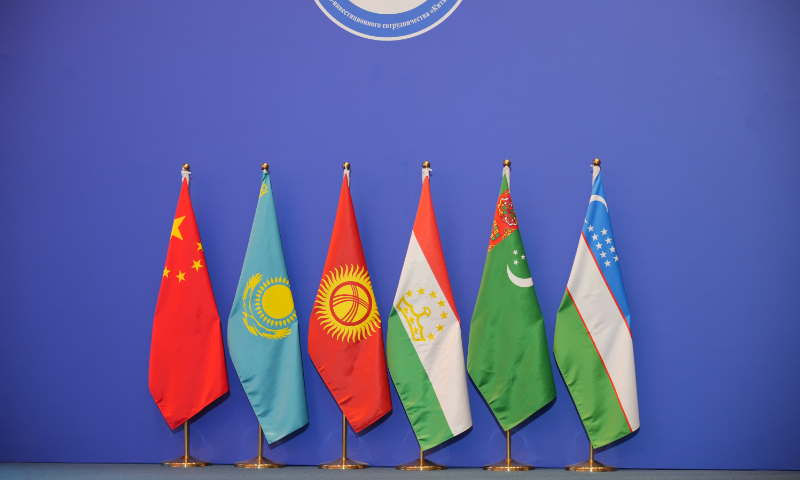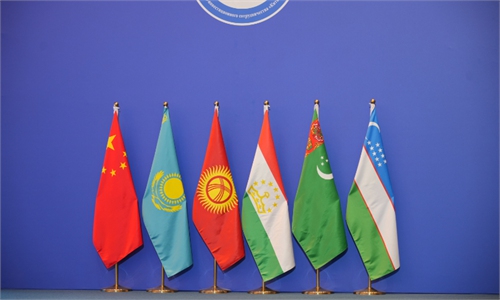Upcoming China-Central Asia Foreign Ministers' Meeting to pave way for leaders' summit

China + Central Asia (C+C5) industry and investment cooperation forum Photo: VCG
Chinese State Councilor and Foreign Minister Qin Gang will chair the fourth China-Central Asia Foreign Ministers' Meeting on Thursday in Xi'an, Northwest China's Shaanxi Province, the Chinese Ministry of Foreign Affairs announced on Tuesday, at which experts believe the common pursuit of peaceful development will bring new opportunities for cooperation between China and Central Asian countries.
According to the announcement, during the third China-Central Asia Foreign Ministers' Meeting in June 2022, all parties agreed to establish the heads of state meeting mechanism of China plus Central Asia. As pointed out by experts, the mechanism will become another multilateral mechanism between China and Central Asian countries besides the Shanghai Cooperation Organization, which is of special significance to promoting cooperation between China and Central Asian countries.
As agreed by all parties, the first summit will be hosted by China. The main task of the upcoming foreign ministers' meeting is to make comprehensive political preparations for the success of the summit. Kazakhstan's Deputy Prime Minister and Minister of Foreign Affairs Murat Nurtleu, Kyrgyzstan's Minister of Foreign Affairs Kulubaev Zheenbek Moldokanovich, Tajikistan's Minister of Foreign Affairs Sirojiddin Muhriddin, Turkmenistan's First Deputy Minister of Foreign Affairs Vepa Hajiyev, and Uzbekistan's Minister of Foreign Affairs Bakhtiyor Saidov will travel to China for the meeting.
The six countries will exchange views on the arrangements for the summit, China-Central Asia cooperation in various fields, and international and regional issues of shared interest, Chinese Foreign Ministry spokesperson Mao Ning said at a press briefing on Tuesday.
Experts said the foreign ministers' meeting is likely to touch on the alignment of the development strategies of Central Asian countries and the Belt and Road Initiative, as well as some economic topics, including infrastructure construction and energy cooperation.
The meeting will also focus on regional security issues, such as terrorism, extremism and drug problems.
In addition, the meeting may express concerns about the international situation and issue common positions to set the tone for the upcoming summit, experts said.
In the new situation, especially after the withdrawal of American troops from Afghanistan, interfering forces in Central Asian region have been reduced, and the scope for cooperation has become larger than before, Zhu Yongbiao, director of the Center for Afghanistan Studies at Lanzhou University, told the Global Times on Tuesday. On the other hand, Central Asian countries' willingness to cooperate with China has increased as their position in the US' geostrategic orbit has declined and the Central Asian countries have realized the importance of developing a pluralistic and balanced diplomacy.
In terms of practical actions, China has shown an objective and neutral stance on international hot-button issues, including those in the Middle East, on the Afghanistan issue and on the Russia-Ukraine conflict, Zhu said.
Under the new geopolitical landscape, China and Central Asian countries have strong impetus for cooperation in energy cooperation, disaster prevention and reduction and infrastructure construction, experts noted.
China and Central Asia share the same position on many important international issues and share the same concern for peace. "They can speak with one voice, which brings new opportunities for China-Central Asia cooperation," Zhu said.

